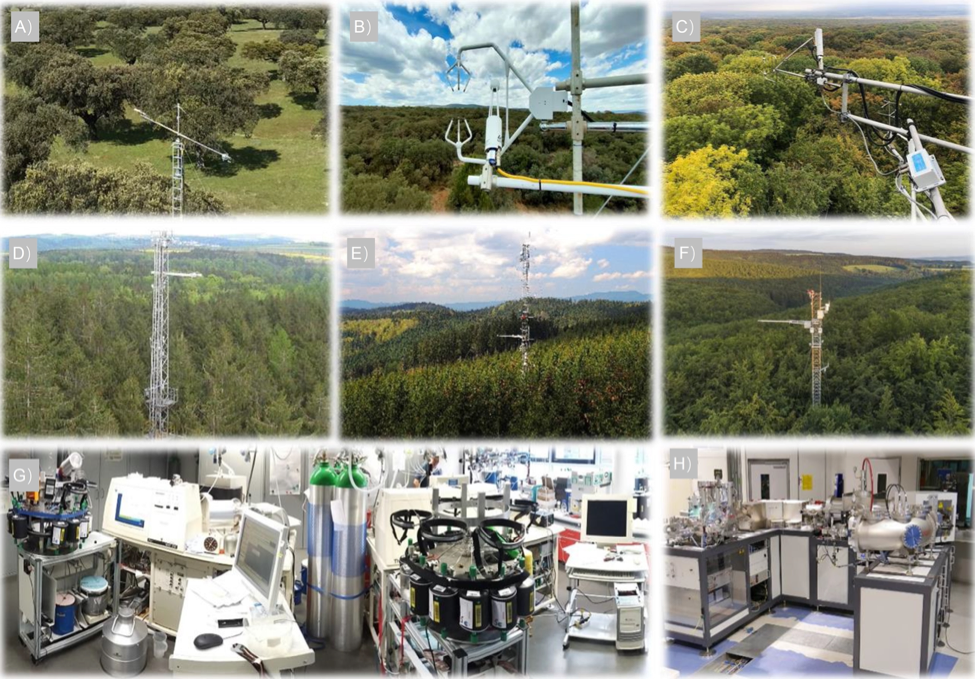PhD project offered by the IMPRS-gBGC in July 2023
Understanding forest carbon-water relations in a changing climate |
|
Jianbei Huang
,
Susan Trumbore
,
Sönke Zaehle
|
Project descriptionForests face significant challenges from climate change (e.g. rising temperature and changes in precipitation patterns) and intensified anthropogenic activities and disturbance (e.g. deforestation), posing threats to their stability and the ecosystem services they provide. Despite the severe consequences, our ability to accurately assess and predict forest productivity and stability remains uncertain, largely due to lack of understanding of the biological and ecological mechanisms driving forest responses to climate change and anthropogenic activities.In the framework of a highly collaborative and interdisciplinary project between the Max Planck Institute for Biogeochemistry (MPI-BGC) and Chinese Academy of Sciences, this PhD project provides a unique platform for the candidate to integrate resources and expertise across disciplines to improve our understanding and predictions of forest carbon-water relations under global environmental change, such as rising CO2, increasing aridity and temperature, and nitrogen deposition. Specifically, the candidate will: 1) conduct field samplings based on an established network of forest flux stations within Europe, covering different biomes (e.g. temperate and dryland forests) and dominant tree species; 2) use state-of-the-art lab protocols to examine the key functional traits/processes that determine forest carbon-water relations; 3) combine collected data and existing databases (e.g., FLUXNET, ICOS) to examine forest carbon-water relations at different spatial and temporal scales; and 4) collaborate with remote sensing analysts and modelers to improve predictions of forest carbon-water relations under global environmental change scenarios. Working group & cooperationsThe successful applicant will be affiliated with the MPI-BGC Processes Department (Dr. Jianbei Huang and Prof. Susan Trumbore) and the MPI-BGC Signals Department (Prof. Sönke Zaehle, Terrestrial Biosphere Modelling), and benefit from established collaborations with European flux stations, CAS-RCEES (Prof. Bojie Fu, ecosystem service assessment) and CAS-ITP (Prof. Shilong Piao, eddy-covariance fluxes and remote sensing). As part of the joint MPG-CAS research project, the PhD candidate also has the opportunity to interact and collaborate with researchers from other MPI and CAS institutions, spanning multiple disciplines.RequirementsApplications to the IMPRS-gBGC are open to well-motivated and highly-qualified students from all countries. Prerequisites for this PhD project are
 A subset of the European Flux sites involved in the project and instruments at MPI-BGC. A, Majadas, Spain, ©Nadine Hempel/MPI-BGC; B, Manzanera, Spain, ©Ana López Ballesteros/CITA; C, Hainich, Germany, ©Bioclimatology/University of Göttingen; D, Tharandt, Germany, ©Meteorology/TU Dresden; E, Bily Kriz, Czechia, ©Ladislav Šigut/CzechGlobe; F, Stitna, Czechia, ©Ladislav Šigut/CzechGlobe; G, IsoLab, ©Heiko Moossen/MPI-BGC; H, Accelerator Mass Spectrometry, ©Axel Steinhof/MPI-BGC. |